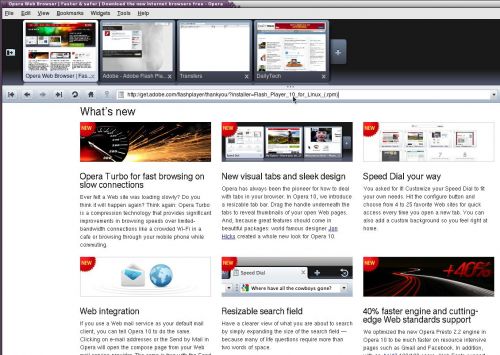Recent revisions to Facebook's terms of service resulted in debates regarding the organization's rights over user content.
Recent revisions to Facebook's terms of service resulted in debates regarding the organization's rights over user content. In effort toward creating a solution, Facebook has now returned their terms of service to its previous wording.
Does Facebook claim ownership to any of its users’ content on the site, even if that content has been deleted? A blog's commentary over the weekend regarding a change Facebook made on Wednesday to their terms of service sparked this question and created a firestorm of banter on the Web. In an attempt at fixing the situation, Facebook has now brought back their previous terms of service.
Upon logging into Facebook, users will find the most recent update on the site's terms of service: "Over the past few days, we have received a lot of feedback about the new terms we posted two weeks ago. Because of this response, we have decided to return to our previous Terms of Use while we resolve the issues that people have raised. For more information, visit the Facebook Blog."
The public has even been invited to share their thoughts on what should be in the new terms, via the site's group Facebook Bill of Rights and Responsibilities.
Company legal representative Suzie White explained the recent terms of service changes in a blog post, "We used to have several different documents that outlined what people could and could not do on Facebook, but now we're consolidating all this information to one central place...We've also simplified and clarified a lot of information that applies to you, including some things you shouldn't do when using the site."
Debates, which began on Sunday, resulted from a revision in the wording of Facebook’s policy where it covers what will happen to profile content (i.e., shared items, notes, photos, etc.) after an account has been deleted.
The Consumerist, a consumer advocacy blog, simplified Facebook's revised policy into one statement they believed to have summed it up: "We Can Do Anything We Want With Your Content. Forever." The Consumerist also brought attention to the fact that the new terms of service came without sentences explaining that Facebook's licenses on user content expire after the deletion of an account.
One Consumerist commenter reacted by stating that Facebook should now be called “The Information Blackhole". They went on to warn, "What goes in never comes out. Be careful what you huck in there."
Although most Facebook users were expected to be apathetic toward the terms of service changes, certain supporters of copyright reform and privacy became worried by the news. Examples of those hosting concern included photographers and writers wishing to keep uploaded photos or notes that were written on Facebook, in hopes of eventual profit from that work.
Certain prominent Twitterers and bloggers, such as music critic Sasha Frere-Jones, decided to delete their Facebook account all together, or at least to erase any uploaded content from the site.
On Monday, Facebook attempted to clarify the true purpose of the terms of service changes.
Facebook spokesman Barry Schnitt explained, "We are not claiming and have never claimed ownership of material that users upload."
"The new Terms were clarified to be more consistent with the behavior of the site," Schnitt continued. "That is, if you send a message to another user (or post to their wall, etc...), that content might not be removed by Facebook if you delete your account (but can be deleted by your friend)."
Schnitt’s statement also explained that Facebook's license only allows the organization to use user content "in connection with the Facebook Service or the promotion thereof." Furthermore, he shared how if a user’s content is not public, Facebook will abide with these privacy settings. So, if a profile and its uploaded content have settings which only allow contacts on that user’s friends list to see them, Facebook will not show any of the content to any person outside of that particular friends list. The networking site has communicated their disapproval in circumstances when pictures usually protected by Facebook's login wall or privacy settings have become accessible to the public on the Web.
Although Facebook's terms of service says that the organization does not have ownership over user content, they do have "an irrevocable, perpetual, non-exclusive, transferable, fully paid, worldwide license (to)...use, copy, publish, stream, store, retain, publicly perform or display, transmit, scan, reformat, modify, edit, frame, translate, excerpt, adapt, create derivative works, and distribute" material, if it avoids violating any of the user’s privacy settings.
Later on Monday, Zuckerberg mentioned the issue in a post on the Facebook blog. "Our philosophy that people own their information and control who they share it with has remained constant. A lot of the language in our terms is overly formal and protective of the rights we need to provide this service to you. Over time we will continue to clarify our positions and make the terms simpler."
Zuckerberg went on to assure that Facebook takes these issues and their responsibility to help resolve them very seriously.
[
Submitted by Christo [PCD]]



